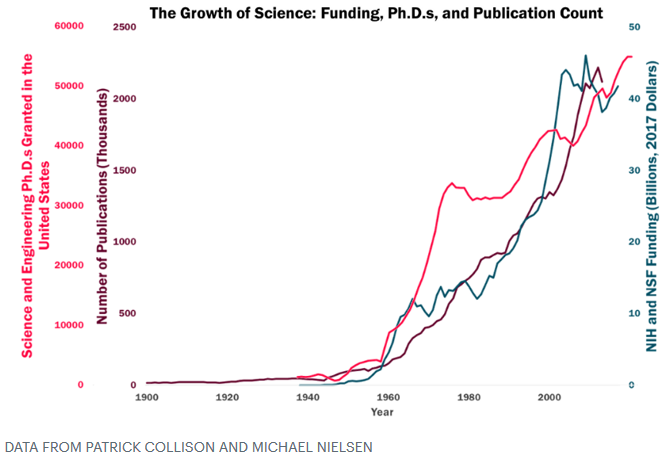Source: Science Is Getting Less Bang for Its Buck | The Atlantic, by Patrick Collison and Michael Nielsen

[Scientific progress is] requiring larger teams, far more extensive scientific training, and the overall economic impact is getting smaller.
…
in the early days of the Nobel Prize, future Nobel scientists were 37 years old, on average, when they made their prizewinning discovery. But in recent times that has risen to an average of 47 years, an increase of about a quarter of a scientist’s working career.
…
When Ernest Rutherford discovered the nucleus of the atom in 1911, he published it in a paper with just a single author: himself. By contrast, the two 2012 papers announcing the discovery of the Higgs particle had roughly a thousand authors each. On average, research teams nearly quadrupled in size over the 20th century, and that increase continues today. For many research questions, it requires far more skills, expensive equipment, and a large team to make progress today.
…
U.S. productivity growth is way down. It’s been dropping since the 1950s, when it was roughly 6 times higher than today. That means we see about as much change over a decade today as we saw in 18 months in the 1950s.